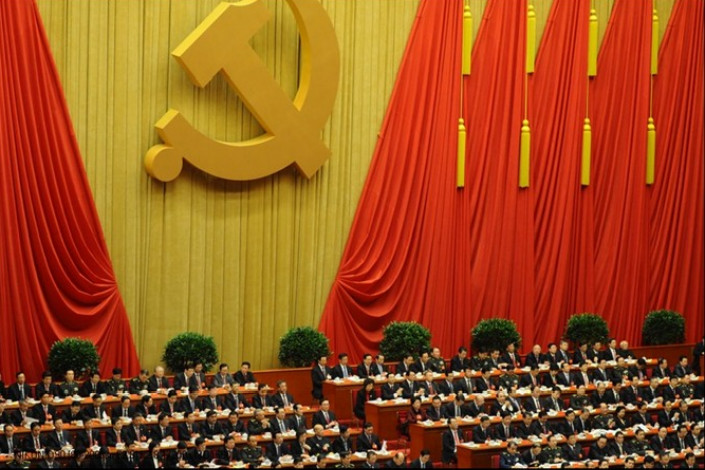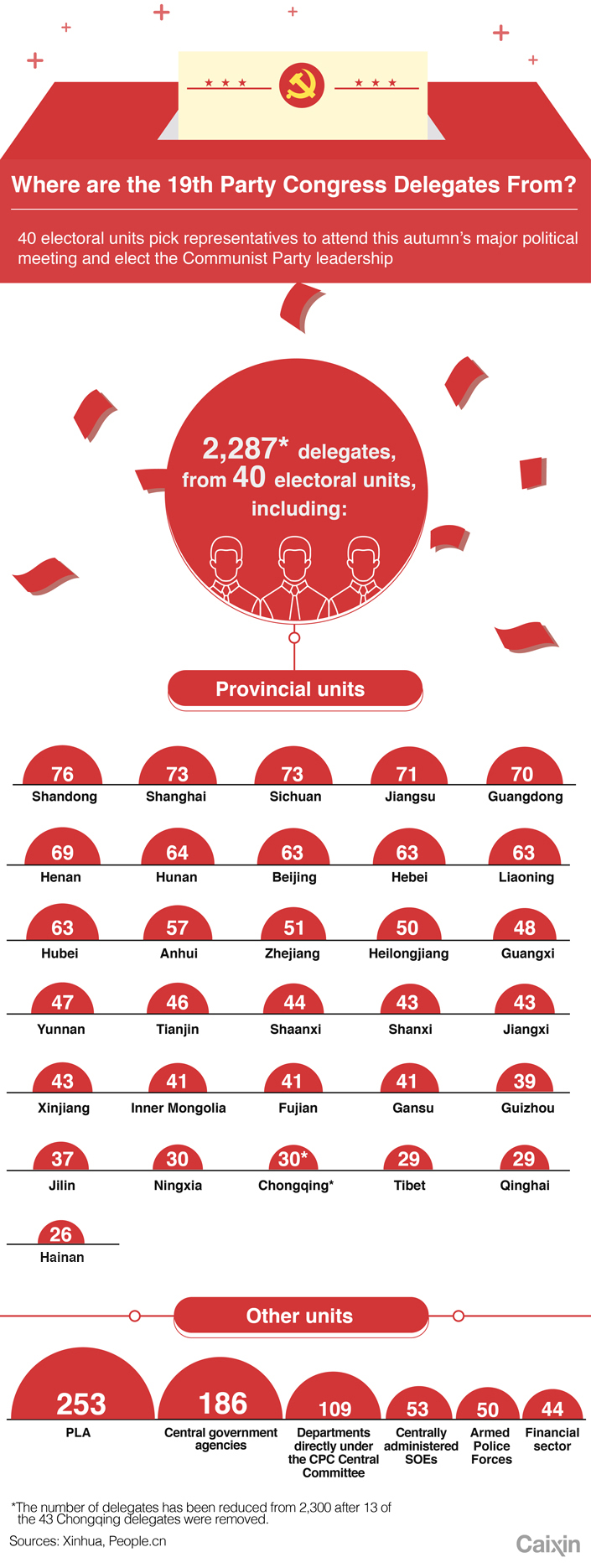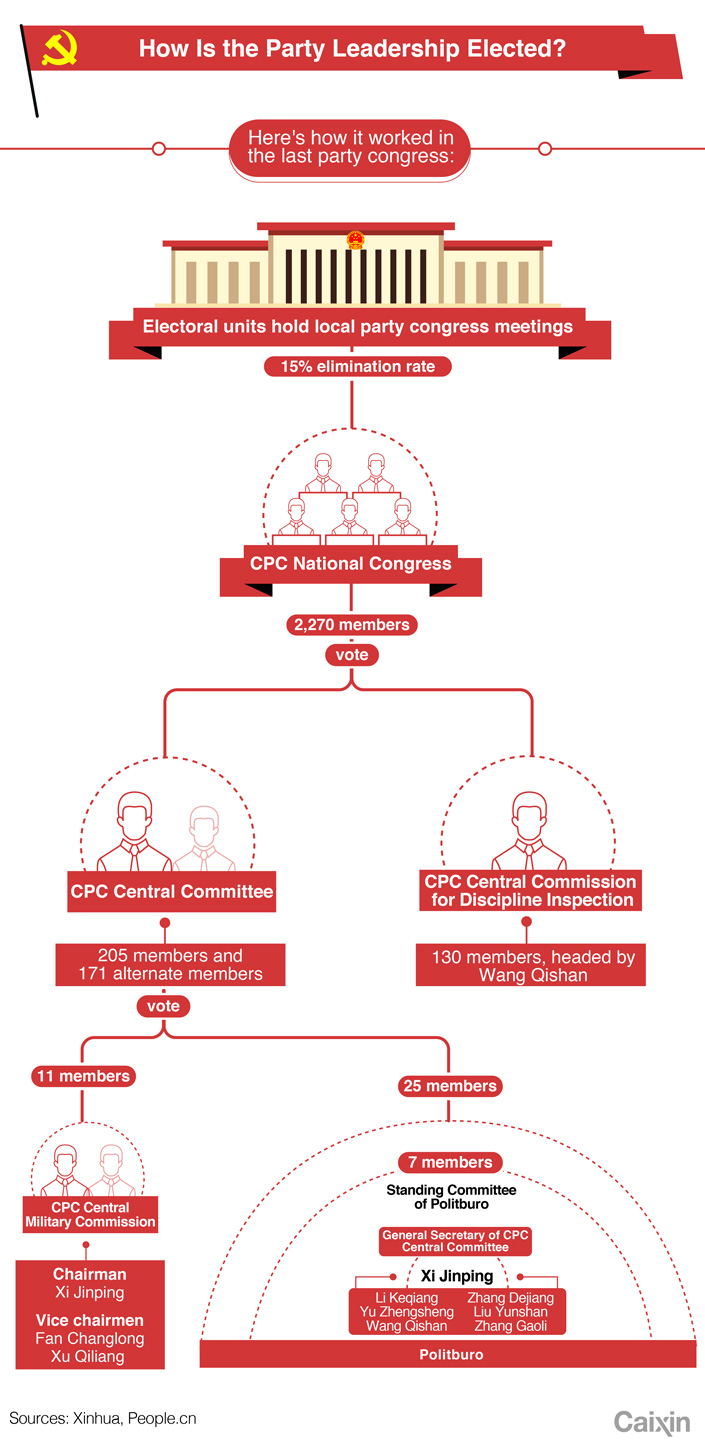5 Things You Need to Know About China’s National Party Congress

In the major party reshuffle, some officials will stay in their posts; others will be elevated; and some will retire. The nation will closely watch, as the new mixture of leadership will help shape China’s future political and economic landscapes.
Here are five things to know:
What will happen?
A total of 2,300 delegates to the 19th party congress, or the elites of the more than 89 million party members nationwide, will gather in Beijing to vote for members of the party’s Central Committee and the Central Commission for Disciplinary Inspection, a powerful anti-corruption body. The current, 18th Central Committee has more than 370 members and alternate members, and the anti-corruption commission has 130 members.
Based on previous experience, right after the weeklong National Congress meeting ends, the party’s Central Committee will hold its first plenary meeting to elect a Politburo and its Standing Committee, which comprises the nation’s top leadership.
On Nov. 15, 2012, for example, the then-newly elected 18th CPC Central Committee elected 25 Politburo members, of which seven are the Standing Committee’s members. Among them are current President Xi Jinping, who is also general secretary of the party, and Premier Li Keqiang.
The elections during the National Congress and the ensuing plenary meeting may not bring in many new party officials, but will add fresh blood as some older officials retire.
Who gets to attend the National Party Congress?
The 19th National Party Congress will have 2,300 delegates, 30 more than the previous term. The party’s organizational department said the additional delegates will better represent party members from the “front line,” or the grass-roots occupations like workers, farmers and specialists of various trades.
The delegates will come from 40 electoral units, including 31 provincial units, a financial sector unit, a military unit, a state-owned enterprise (SOE) unit and a central government agencies unit, among others.
According to the party authority, the proportion of party or government officials in the provincial, financial and SOE units will be reduced to no more than two-thirds of the total 19th congress, the result of efforts to increase the ratio of grass-roots party delegates.
 |
How are the party congress delegates picked?
The grass-roots party organizations will propose their respective candidates. The upper-level party organizations will screen the candidates and propose a list to higher-level party committees. The provincial party committees, for example, will hold provincial congress meetings to elect their delegates to the National Congress.
Political loyalty to the Communist Party is the top criteria for a candidate. The central party authority also has vowed “zero tolerance” for candidates with a record of corruption.
The election of National Congress delegates is also based on a competitive system that requires about 15% more candidates than the seats for vote. Beijing, for instance, picked 65 delegates out of 73 candidates in June. Shanghai elected 73 delegates out of 83 in May.
The election was done through secret ballots.
More than 700 provincial delegates of Zhejiang casted ballots on June 15 to elect 51 National Congress delegates and the province’s 100-strong party committee members and alternate members, according to a China News Service report.
How long can party leaders hold their jobs?
Since 1993, the Communist Party’s top leader, the general secretary, has also taken the nation’s top job as a president.
The Communist Party’s constitution does not specify how many terms the party’s leaders can serve, saying only that each term lasts five years. But the nation’s constitution says its president can serve no more than two five-year terms.
Jiang Zemin took the helm as the party’s general secretary in June 1989. Jiang was formally elected to this position in October 1992 and as Chinese president in March 1993. He handed over the two jobs to Hu Jintao in November 2002 and March 2003 respectively.
Sun Daiyao, a professor with Peking University’s School of Marxism, said it was the Chinese top leaders’ first smooth transition of power since 1949, according to an article he published in 2013 on People’s Forum (link in Chinese), a magazine run by the Communist Party’s flagship newspaper People’s Daily.
The Chinese leader followed the Constitution’s rule of serving no more than two terms as government head, and also quit the party leadership, though the party charter does not specify the limit of terms. It created a precedent in the power transition, which was strengthened when Hu also passed on the party leadership and presidency to Xi Jinping in November 2012 and March 2013 respectively, after completing 10 years, or two terms, Sun said.
How is the Central Military Commission picked?
In China, the Communist Party controls of the People’s Liberation Army via the CPC Central Military Commission. A party leader normally doubles as the military commission chairman, or the commander-in-chief of the military.
The Communist Party’s constitution says the Central Military Commission is decided by the party’s Central Committee.
The 18th CPC Central Committee named Xi the Central Military Commission chairman on Nov 15, 2012, in its first plenary session, the next day after the 18th National Party Congress elected a central committee. He became the party leader on the same day.
Two vice chairmen were also named, in addition to eight other members of the military commission, during the meeting that day.
The constitution does not specify the maximum time one can serve as the Central Military Commission chairman. Then-party leader Jiang Zemin handed over the military to his successor, Hu Jintao, in September 2004, two years after he handed over the party leadership to Hu, and nearly 15 years after he commanded the military. Hu passed the Military Commission chairmanship to Xi Jinping in November 2012, the same time as Hu handed over the party leadership.
 |
Contact reporter Wu Gang (gangwu@caixin.com)
- 1Cover Story: China Carves Out a Narrow Path for Offshore Asset Tokenization
- 2Drownings Shake Chinese Enthusiasm for Travel to Russia
- 3Over Half of China’s Provinces Cut Revenue Targets
- 4Li Ka-Shing’s Port Empire Hit by Forced Takeover Amid Panama Legal Dispute
- 5In Depth: China’s Mutual Fund Industry Faces Overhaul After a Banner 2025
- 1Power To The People: Pintec Serves A Booming Consumer Class
- 2Largest hotel group in Europe accepts UnionPay
- 3UnionPay mobile QuickPass debuts in Hong Kong
- 4UnionPay International launches premium catering privilege U Dining Collection
- 5UnionPay International’s U Plan has covered over 1600 stores overseas






